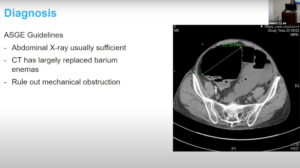NEW YORK (Reuters Health) – The risk of arterial thromboembollic events related to bevacizumab treatment of colorectal cancer (CRC) in older patients is moderate in general practice, and lower than has been reported in clinical trials, according to a new report.
“Many seriously ill patients with metastatic cancer may be willing to accept an increased risk of a relatively uncommon though potentially serious side-effect in exchange for the extension of survival by a median time of 5 months,” the researchers suggest.
Dr. H.-T. Tsai, at Georgetown University in Washington, DC, and colleagues explain in the Annals of Oncology online February 20 that several trials have demonstrated that bevacizumab improves survival when added to chemotherapy for metastatic CRC. While cardiovascular events have been commonly reported after bevacizumab use, the attributable risk remains unclear.
To assess the safety of bevacizumab in patients 65 years of age and older, the team identified a population-based cohort of 6803 individuals who received chemotherapy for metastatic colorectal cancer between 2005 and 2007 and were followed through 2009. The median age was 73 years.
In the cohort, 2787 patients (41%) received bevacizumab during follow-up. They were significantly less likely than those not given bevacizumab to have a history of cardiac comorbidity and arterial thromboembolic events, the authors note.
The adjusted hazard ratio for an arterial thromboembolic event during 3 years of follow-up was 1:82 for patients who received bevacizumab compared to those who did not, according to the report. However, the absolute incidence rate in the two groups was low at 15.90 versus 12.38 per 1000 person years; i.e., an additional 3.52 events per 1000 person-years.
The observed risk of arterial thromboembolic events (ATEs) was somewhat lower than was found in two recent trials among CRC patients aged 65 or older, the authors point out. “This may be partly attributable to careful patient selection by community practitioners aware of the potential cardiac risks associated with prescribing bevacizumab,” they believe.
There was no difference in the risk of developing cardiomyopathy or congestive heart failure (CM/CHF), or of cardiac death, with or without bevacizumab, the investigators found.
“The risk of ATEs, CM/CHF, and cardiac death in elderly patients with metastatic CRC associated with bevacizumab is minimal,” Dr. Tsai and colleagues conclude.
“Our study cohort included sub-groups frequently excluded from randomized studies due to older age and/or predisposing medical conditions,” they add. “Consequently, our findings are more generalizable to patients in general clinical practice.”
SOURCE: Bevacizumab use and risk of cardiovascular adverse events among elderly patients with colorectal cancer receiving chemotherapy: a population-based study
Ann Oncol 2013.




